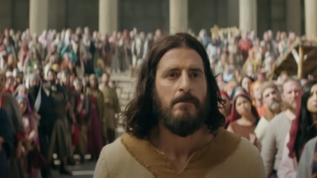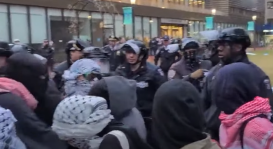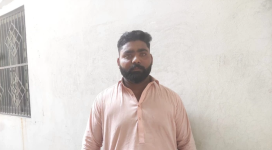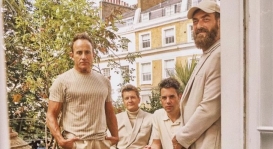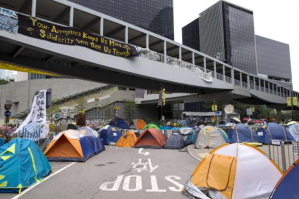
As Hong Kong's student protests continue to heat up this week, protest leaders plan to visit China's capital city to bring the issue directly to Premier Li Keqiang.
But the planned trip to Beijing may be thwarted before it can begin. China's Chief Secretary Carrie Lim says that students would be wasting their time coming to the capital if they were only going to repeat their same demands.
But the secretary general of the Hong Kong Federation of Students, Alex Chow, told reporters that Saturday's planned trip to Beijing "symbolises that Hongkongers are not afraid of Beijing's manipulation."
These student protests, also referred to as the Umbrella Movement to convey how umbrellas are being used to deflect tear gas canisters and batons, started in September of this year to fight China's decision on proposed electoral reform for the 2017 elections. The country's Standing Committee of the National People's Congress (NPCSC) announced that it would disallow civil nominations, essentially allowing the committee to elect two to three candidates before the general public could vote. This angered the Hong Kong Federation of Students and the protesters took to the streets to show their disapproval.
When Chinese police used tear gas to break up the protesters, even more citizens joined the uprising, with peak numbers estimated at over 100,000 occupying the city's Causeway Bay and Mong Kok.
Alex Chow, along with fellow student leaders Eason Chung and Nathan Law, plan to visit Beijing this weekend to meet with the premier and negotiate demands. Right now, the student and civilian protesters are blocking key economic and political areas of the city, but government officials say that court rulings will allows authorities to clear them out soon.
While Chow admits that he wasn't sure if he'd even be allowed to fly into the city to speak with officials in the first place, he says that the leaders will cancel the trip if police succeed in clearing the blocked areas. Both Hong Kong and Beijing government officials have said that the blockages are illegal, but a lawyer representing two groups that oppose the protests said that a delay is imminent due to vague wording in the clearance document. This means that the protesters will most likely remain until Wednesday or Thursday of next week.
As the protest stands six weeks after it began, hundreds of people remain at three key sites in organized "tent cities," according to the BBC. These areas are outfitted with food stalls, toilets, and even study areas.
Currently, China rules the former British colony of Hong Kong under a "one country, two systems" method that allows the city its own freedoms not enjoyed by those in mainland China. Universal suffrage has been a goal for several years, and recent rulings in August fanned the flame of Hong Kong's expectations for that goal.
While most international media outlets report on the protests from the angle of support for the students and this particular protest event, The Guardian's Martin Jacques argued that the unrest has roots much deeper than most realize, going back to 1997 when Hong Kong came under China's rule.
A statement on the Hong Kong Federation of Students Facebook page said that the student leaders' goal was neither "to challenge the central government's authority, nor destroy the 'one country two system' formula" but to discuss political reform. "As Hong Kong people, we have the right to go to Beijing in person."
Zhou Fengsuo, exiled leader of the 1989 Tiananmen Square protests, warned that students may be facing a greater danger than they realize by traveling to Beijing. "Of course there is a serious risk. They are not Hong Kong police [in mainland China] that we can hold accountable. We never know what kind of risk [the students might face] if they go to Beijing."



